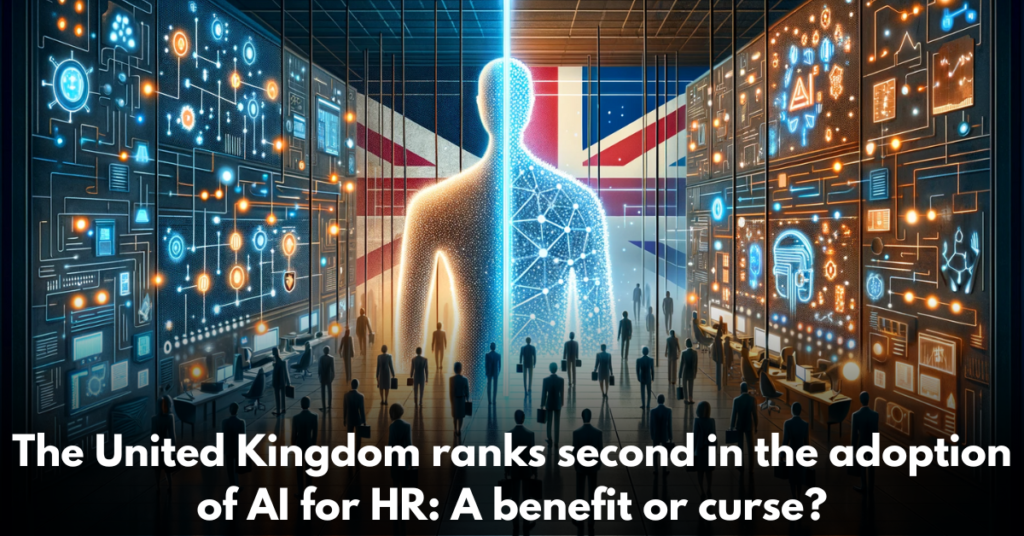The United Kingdom ranks second in the adoption of AI for HR: A benefit or curse?
According to research, office workers in the United Kingdom are falling behind their counterparts in the United States when it comes to the adoption of artificial intelligence in the workplace. According to research by the software company Asana’s Work Innovation Lab, only 29 percent of office workers in the United Kingdom use artificial intelligence (AI) in their work at least once a week, compared to 46 percent of office workers in the United States. The United Kingdom ranks second in a recent IBM study that included twenty different nations, with 46% of its businesses utilizing artificial intelligence to streamline procedures like hiring, firing, and training. This places the United Kingdom in the same position as the United Arab Emirates, ahead of the United States of America, but behind India.
UK Workers’ Confidence Gap in Artificial Intelligence
It appears that British workers have less confidence in the technology, despite the fact that Prime Minister Rishi Sunak announced in June that he intended to make the United Kingdom the home of artificial intelligence safety and that he would pledge to make London the next Silicon Valley. The percentage of British workers who believe they would be perceived as lazy if they used artificial intelligence at work is 30 percent, which is significantly higher than the percentage of American workers who believe they would be perceived as lazy. Leaders shared the reluctance of British workers toward artificial intelligence due to the fact that companies in the United States were almost twice as likely to provide their employees with training in AI. In comparison, only 13% of businesses in the United Kingdom offered training with artificial intelligence tools, while more than a fifth of American businesses (22%) offered such training.
Insights from Personio’s Head of People Operations
Personio’s head of people operations, Angelina Gentili, stated that human resource leaders have a responsibility to assist employees in making the transition to a future in which there will be more AI in the workplace. This includes providing the appropriate training. Gentili stated the following in an interview with HR magazine: “As a first priority, HR must communicate about how AI will be used in the workplace to help improve confidence and transparency and to create a platform for employees to raise any concerns they may have.” Following that, it is crucial for HR to support business leaders in identifying the areas where digitalization and artificial intelligence could reduce inefficiencies. Policies around data and privacy will be vital in this process, she added, and businesses should evaluate their stance on how AI tools are used.



